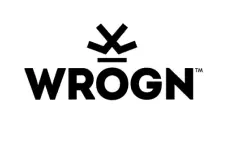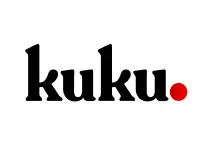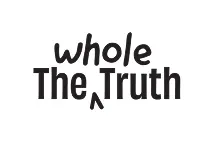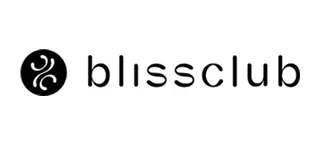Crime Insurance
Get ₹25 Lakh Cover,
Starting At ₹7,872*/year
Quotes in seconds. Coverage in minutes.
Trusted by




















Policies Sold
on Google
Total Sum Insured
Crime Insurance
Get ₹25 Lakh Cover,
Starting At ₹7,872*/year
Get Quotes in a Few Steps
Policy Provided by



Get ₹25 Lakh Cover,
Starting At ₹7,872*/year
Crime Insurance
Protects businesses when theft or fraud causes financial losses
WhyChoose BimaKavach?

Speed
Quotes in seconds, coverage in minutes!
Service
Dedicated support, quick replies!
Savings
Best prices, maximum savings!
Understand
Your Insurance
Before Buying
Crime Insurance Made Easy
Click on any topic to see the answer.
To share a topic, click the link icon next to it.
Understand
Your Insurance
Before Buying
Business Crime Insurance is a simple way for businesses to protect money, goods, and data under one policy. It pays for losses caused by employee theft, fraud, forgery, computer misuse, robbery, and burglary. The employer pays the premium, making protection easy and affordable. People also know it as Commercial Crime Insurance, Fidelity Guarantee Policy, Employee Dishonesty Insurance, or Crime Fidelity Insurance.
See More...Business Crime Insurance works in a clear, step-by-step way that keeps business owners calm and confident. You first decide how much money, stock, or data you wish to protect. You then pay a yearly premium to the insurer. Once the insurer issues the policy, cover starts at once, and your company gains a shield against employee theft, cheque forgery, online crime, robbery, and burglary.
Daily habits play a big part in keeping trouble away. You lock cash safely, count stock with a second person, change computer passwords often, and match bank slips with your cash book every week. These simple checks lower risk and help the insurer approve claims quickly. Your staff see that the business values honesty, which also cuts the chance of fraud.
If something looks wrong—perhaps cash is short, goods disappear, or a bank transfer seems odd—you confirm the loss from your records and tell the insurer straight away, usually within seven days. You send clear proof such as bank statements, stock sheets, short camera clips, or computer logs. The insurer studies the proof, agrees on the amount, and keeps you informed during every step. You always know what is happening.
After the investigation, the insurer pays the approved amount directly into your business account. The policy can also refund reasonable costs for audits or legal advice. Your cash flow stays steady, staff receive their salaries on time, and supplier bills remain paid. If the stolen money or goods are recovered later, the insurer shares that amount with you up to the full loss. The claim process turns a possible cash crisis into a short, manageable task.
Consider a hardware wholesaler in Patna. A clerk copied an online banking password and transferred ₹55,000 to a friend. The owner checked the books, sent bank prints and a police note to the insurer the same day, and kept all updates in one file. The insurer confirmed the loss in one week and paid ₹55,000, plus ₹3,000 for report costs, within ten days. The business covered payroll, kept credit with suppliers, and moved on without stress.
Business crime does more than just take away money. It can disturb your daily work, affect your people, and slow down your future plans. If you understand how wide the damage can be, you will see why it is better to stay prepared.
Stops your daily work
If fraud happens, it can pause payments, delay salaries, or stop orders. Even a small loss can cause a big break in your regular flow.
Makes your customers leave
If orders are delayed or cancelled, customers may lose trust. Some may even stop working with you and choose someone else. Once trust is broken, it is very hard to win it back.
Slows your business growth
You will need time to check records, collect papers, and file reports. While you do that, regular work slows down. It becomes hard to focus on sales, service, or future plans.
Damages your name in the market
In small markets, news spreads fast. If people find out that your business faced fraud, it may hurt sales and deals. Partners may also change payment terms.
Increases your future costs
If you make a claim for a crime loss, your insurance premium may go up later. You may also need to spend on better locks, systems, or checks every month.
It is always better to stop a crime than to fix the damage later. You do not need fancy tools or big spending. Small steps, done regularly, can help keep your business safe from fraud, theft, and cheating.
Take two approvals for all payments
Always ask two people to check and approve payments. This keeps mistakes low and makes it harder for one person to misuse company money.
Change passwords often
Update passwords for banking, emails, and company software every month. Use strong passwords and never share them with anyone, not even on calls.
Do surprise checks
Check your cash, stock, and bank records without telling anyone beforehand. This helps you find problems early.
Check background before hiring
Before hiring staff who will handle money or stock, check their past jobs and behaviour. This helps avoid future trouble.
Update your software
Keep computers and apps up to date. New updates fix weak points that hackers can use.
Give access only when needed
Share business files and systems only with people who need them for work. Fewer people with access means lower risk.
Crime can affect any business, big or small. If your company handles money, stock, goods, or customer data, then you face a risk. Business Crime Insurance is useful for many types of businesses, especially those where daily operations involve cash, large payments, or multiple team members.
Here are some businesses that must think about Business Crime Insurance:
Manufacturing
Factories often store raw materials, finished goods, and spare parts. If items go missing or records are changed, the loss can be high. Crime Insurance helps recover losses from employee theft, forgery, or fake bills.
Logistics and Supply
Transporters and warehouse owners deal with goods worth lakhs each day. If goods are stolen, or someone changes delivery records, it can stop business. Crime Insurance helps cover losses and reduce stress.
BFSI (Banking, Financial Services, and Insurance)
These firms manage large amounts of money and sensitive customer data. Any mistake or fraud can lead to big financial losses and legal trouble. Crime Insurance gives protection against internal and external fraud.
D2C (Direct-to-Consumer Brands)
D2C brands handle online payments, warehouses, and delivery systems. Fraud in orders, staff theft, or online payment scams can hurt profit. This policy helps the business stay safe and steady.
Retail and E-Commerce
Retail shops and online sellers deal with cash, card payments, returns, and stock. One dishonest act can affect trust and money flow. Crime Insurance protects both physical and digital risks.
IT and Consulting
These firms may not handle goods but often store client data, financial reports, and system access. A single leak or misuse can harm the business and its image. Crime Insurance supports recovery and legal help.
Comprehensive Crime Insurance helps protect your business from money loss, legal trouble, and damage to your name. It covers different types of fraud and crimes that may happen in daily business. If you handle money, payments, or staff, this cover gives much-needed support.
Here is what you get covered under Crime Insurance:
Email phishing and social engineering
If someone tricks you or your staff through fake emails or phone calls and money is wrongly transferred, this cover helps recover the loss.
Theft by employee
If one of your employees steals cash, stock, or company property, the insurer helps repay the amount you lost.
Fraud in financial fund transfer
If money is moved from your bank account without your knowledge or through fake approvals, this part of the policy pays for the loss.
Cheque forgery
If someone creates or signs fake cheques in your business name, and you lose money because of it, this loss is also covered.
Credit card fraud
If your business credit card is used without your permission, either by a staff member or an outsider, this part of the cover helps you recover the stolen amount.
Public relations cost
If your business name is harmed due to the crime and you need help to protect your brand, the insurer pays for the cost of public relations support.
Court attendance fees
If you or your staff must attend court for a case related to the crime, the policy helps pay for travel and stay expenses.
Legal fees during a lawsuit
If the fraud leads to a legal case, the policy helps cover lawyer fees and other legal costs during the case.
Add-ons are extra covers you can include with your main Crime Insurance Policy. They give added protection for risks that may not be covered under the standard plan. These are useful if your business deals with money, online systems, or third parties daily.
Here are some important Crime Insurance add-ons you should know about:
Social Engineering Fraud
This protects you if someone tricks your staff using fake emails, calls, or messages. If money is sent to a fraudster by mistake, this cover helps you recover the amount.
Data Reconstitution Cost
If a crime damages your business data, this add-on pays for the cost of restoring lost files, records, or system backups. It is useful for businesses that rely on digital systems.
Depositors Forgery Coverage
This protects you if someone forges cheques, drafts, or payment slips related to your account. It pays for the loss caused by these fake instruments.
Third Party Crime Related to Employee Fidelity
If your employee cheats a client, vendor, or third party while working for you, this cover helps you pay for the loss. It is useful if you handle client money, stock, or assets.
While Crime Insurance covers many common risks, there are certain things it does not include. Knowing what is not covered helps you avoid confusion during claims and gives a clear idea of how the policy works.
Here are the main exclusions under Crime Insurance:
Crimes by company management
If owners, directors, or top-level managers commit fraud or theft, the policy will not cover the loss. This is because they hold key control and decision-making powers.
Damage caused by war or terrorism
Any loss that happens due to war, armed conflict, or acts of terrorism is not covered. These events are treated as national risks and are excluded from most standard business policies.
Indirect or consequential loss
If you lose future profits, customer orders, or business reputation due to a crime, the policy will not pay for these indirect losses. It only covers the direct money or goods stolen.
Losses from credit default
If a customer, vendor, or borrower fails to pay what they owe, that loss is not part of Crime Insurance. This is treated as a credit risk, not a criminal act.
Fines and penalties
If the business has to pay a fine or legal penalty due to rules being broken, that cost is not covered. Crime Insurance will only pay for approved legal fees, not punishments.
Losses from trade secrets or intellectual property (IP) misuse
If someone copies your designs, client list, or software code, the loss is not covered under this policy. These risks fall under a different type of insurance, usually IP protection.
Notify Us
As soon as the incident happens, contact us within 2 days. Share the details of what happened and any key documents, such as the legal notice, FIR, or incident report. We will ensure everything is in place to start the process.
We will Help You with Lawyer Approval
Before hiring a lawyer, we will help you get approval from your insurer. We will guide you through the process and ensure everything aligns with your policy. Do not worry, we are here to assist every step of the way.
We will Guide You on Lawyer Fees
We will help you get the lawyer’s fees approved by the insurer. You can explore different options, and we will ensure the fees match what is allowed in your policy.
We will Handle the Evaluation
We will help submit the necessary documents and ensure the insurer has everything required to evaluate the claim. If anything extra is needed, we will manage it for you.
We will Keep You Updated on the Decision
Once the insurer has reviewed the claim, we will keep you informed about the decision. If there is any delay due to missing information or complexity, we will help gather the necessary updates and keep the process moving forward.
Employee Fraud in a Textile Factory
In 2023, a supervisor at a textile factory in Surat created fake supplier invoices and approved payments to a personal account over three months. The fraud was discovered during an internal audit. The company filed a claim under its Crime Insurance Policy. The insurer covered ₹8 lakhs for the stolen amount, ₹1.5 lakhs for audit costs, and ₹1 lakh for legal support. This helped the factory recover quickly without disrupting salary payments or fabric orders.
Phishing Scam at a Logistics Firm
In 2022, an accounts officer at a logistics company in Nagpur received a fake email pretending to be from the company’s transport partner. The email requested an urgent fund transfer for vehicle repairs. The officer transferred ₹5 lakhs before realising it was a scam. The company raised a claim under the Social Engineering Fraud cover in its Crime Insurance Policy. The insurer paid ₹5 lakhs for the stolen funds and ₹50,000 for investigation costs. This allowed the business to continue operations smoothly and pay vendors on time.
Cheque Forgery at a Construction Firm
In 2021, a junior accountant at a construction firm in Bengaluru forged the signature of a director and issued two cheques worth ₹4 lakhs to his own account. The fraud was noticed when the bank flagged an unusual signature pattern. The company filed a claim under its Depositors Forgery cover. The insurer paid ₹4 lakhs for the loss and ₹75,000 for legal fees. This helped the firm stay on track with its ongoing project and avoid delay penalties.
Real Review for Real Speed
Vishal Sharma
FounderAutopilot Design


Common Questions Answered
Common Questions Answered
Have questions or need to speak to an expert?
Have questions or need to speak to an expert?
Learn More About
Crime Insurance
Ready To Buy
Business Insurance?
Join 4,000+ Indian businesses & protect your business today.